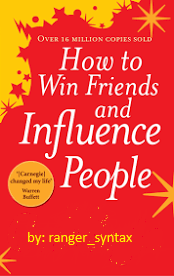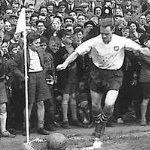Leaderboard
Popular Content
Showing content with the highest reputation on 16/10/24 in all areas
-
Interview in the RR (apologies if it's behind a paywall) with Koppen and his remit as well as his plan going forward with recruitment. https://www.rangersreview.co.uk/interviews/24650431.nils-koppen-exclusive-fixing-rangers-player-trading-model/ He says good things and he's acted on his words thus far with the young players and different markets we're signing from. Some points I think are pertinent: "The club have hired two data engineers to build a custom scouting platform in-house and are working to establish an emerging talent wing in their scouting system. That in-house data investment is viewed as a significant step, not least because the platform provides scouting data detailing players’ technical qualities (xG, passes played, etc) alongside physical data to offer a holistic picture concerning a league where duels matter. The wage bill and average age of the squad have dropped significantly. There’s been a move to reestablish a wage structure and increase the money being spent on the attacking areas, due to the weight of wages attributed to the defensive areas instead in recent years" - - - - - - - - - - - - - - - - - - - - - - - - - - - - This for me is much needed and long overdue. Slightly embarrassing that we didn't have a bespoke model already. On fixing the trading model: So, how do Rangers fix their player-trading problem? How can they consistently sell in order to consistently reinvest? “There are multiple layers. It's firstly about lowering the age because if you look at clubs that are willing to buy, they're not going to buy a 28-year-old. They're going to buy a 19, 21 or 23-year-old. It’s about bringing the age and salary down,” Koppen continues. “Take Sam Lammers, if he had been younger and on a lower wage, we would have been able to get a higher transfer fee. That's just logic. Bringing salaries down and the average age down, both of these things will allow you to sell more easily. “This summer it was impossible with how the squad was built, the profiles and salary profiles, to get decent transfer fees in. It’s also about selling in the right moments. “If we have a player like Jefte who is doing well and the right offer comes in, we should sell him and be brave enough to say that we can find the next one.” - - - - - - - - - - - - - - - - - - - - - - - - - - - - We've said it was a mess and he's echoing our thoughts - what I do like is that he's acted on it and we now have younger assets in the team, it's just a matter of getting them to develop and win whilst doing so. Then the club can't be afraid of offloading them, he mentions in the piece that the club should've sold post 55. Last one: Overlooking the best talent outside of the Old Firm has also vexed supporters in recent years. Signing the likes of Connor Barron only makes sense if you throw them in, however. “It’s about getting the right mindset, that we should be able to play young players. Young, for me, is not 21, it’s 18,” adds Koppen. “Getting that mindset right is key. Maybe he will drown a bit while he tries to swim and that will be the next step. Protecting our academy players for too long and keeping them in a safe environment, they're not going to be the players who manage regular minutes. That's a step we have to take. “We have to be aggressive in the youth market to try to get the best young players in the country and keep investing in that. Because the strong core of Scottish players should come from your own academy. And sporadically, you buy somebody from other clubs, like with Connor Barron. “It’s one of our objectives, to try and sign one player a season from another Scottish club if they’re there and the deal makes sense and it fits the plan. “There are so many circumstances with every transfer call you make. Does the money make sense, is the player arriving in a position you’re looking for, are you killing the value of another player in that position? You need to always consider the overall picture." - - - - - - - - - - - - - - - - - - - - - - - - - - - - This is encouraging and I like that he says young is 18 and not 21. Although this will be the toughest part of the model to get right, Rangers haven't regularly produced their own for as long as I've been alive and possibly as long as some of the older heads in our support. He has signed Barron and we've played him so that is a plus and signing a young Scot a season is a policy I can get behind! That's that, sorry for the long read but i wanted to say something on his recent video and now this interview - we wanted senior figures to tell us what the plan is and he's fronted up. At least we have an idea of what's going to happen going forward. What do you reckon? Happy with these takeaways? There's others but these stood out and are at least being acted on. If any of the admin want to put the quotes in bold because idk how to on my phone - just to make it an easier read. Cheers.4 points
-
That has already happened. UEFA actually love pyro, as these fines pay for their lavish knees ups and jollies all year round.2 points
-
There are busy transfer windows and then there’s the period Rangers experienced this summer. Not quite busy enough, according to some supporters. Indeed, members of the club hierarchy admit that in an ideal world, a few more transfers would have come in the door. Director of football recruitment Nils Koppen, speaking exclusively to the Rangers Review in a two-part interview, discusses the ambitious target set before summer. In the end, 11 new players would arrive with 15 heading in the opposite direction as the first phase of an overdue squad rebuild at Ibrox took place. “It was a very ambitious plan and I think we executed around 80% of that plan on the incoming side,” Koppen shares. “Was the plan more ambitious than we executed? Yes, but in my opinion you always have to set the bar quite high. Sticking to a philosophy is really important, rather than changing during a window because you’re panicking.” Yesterday, the 39-year-old detailed his vision to fix the player-trading model at Rangers that’s failed in recent years while outlining changes to the recruitment process to achieve those means. Today, Koppen discusses the most recent window in detail. From the pursuit of Abdallah Sima, to frustrations surrounding outgoings, Oscar Cortes, the process of a transfer and more. “Adjustment” is a phrase used more than once as Koppen dissects his first summer leading on recruitment at Rangers. Philippe Clement reiterated publicly more than once that very quickly, the club found itself in a position this summer where sales had to be made before signings. This is the reality of inheriting a legacy in football - you can’t just push the reset button on contracts in any given summer. “After the January window, we built a plan. Looking at the blueprint of the team, the money required to rebuild, how that would be generated by outgoings based on squad value and the extra funds required to make it happen,” Koppen says. (Image: Image: Alan Harvey - SNS Group)“While I was ambitious to sell more players, we also had to readjust our expectations because of salaries and the squad’s overall age. In some cases, the interest we expected for certain players was not there. “That resulted in us changing our plans and looking at the loan market more heavily. We had a good plan that the board were really happy with but it’s the reality of football that things change and you need to adjust your expectations as a result.” In the end, nine players arrived permanently while two were acquired on loan. The exits of Connor Goldson and Sam Lammers prompted the arrivals of Robin Propper and Vaclav Cerny. In the final week of the window, Todd Cantwell and Ben Davies departed as Nedim Bajrami and Neraysho Kasanwirjo were brought in. This domino effect, after an early period of activity that saw five players arrive by June, is telling. The frustration, again publicly communicated by Clement, was the limiting factors that prevented even more change. Rangers slashed the wage bill and average age of their squad but as well as missing out on vital Champions League funds in failing to reach the play-off rounds, plans were delayed by outgoings. As Clement suggested at a press conference near the end of the window, “It is the case that [some players] have known that [they can find a new club] a really long time and they are still in the building, so that makes things more difficult, but it is what it is. I cannot put a gun on their heads to get them out of the building... It’s not something I can control.” A feature of the restructured recruitment department led by Koppen is the depth of scouting now attributed to every new signing. Already a large department under the guidance of Ross Wilson as sporting director, the intervening months between Wilson’s exit and Koppen’s arrival had made processes “disjointed”. Now, before a player is even pitched to the manager layers and levels of research are carried out. Mohamed Diomande was the subject of 20 separate scouting reports over three years, live and virtually, before moving from FC Nordsjælland to Rangers in January of this year. The new in-house scouting platform built in 2024, crucially merging physical and technical data, allows the club to scout with a more holistic picture. Diomande’s physical data scaled to Premier League level, lining up with a belief that the Ivory Coast midfielder can make that next step in years to come. The 22-year-old held several Zoom calls with Clement before arriving as Rangers sought to win a competitive transfer battle. While not every transfer will work, players should “come in without one doubt” about their ability. The extent of background research now commissioned is designed to mitigate as many risks as possible. (Image: SNS Group)This summer 62 players reached the final stage of the recruitment process - which sees the manager review footage and often hold discussions with the individual. Many more were falsely linked with a move to Glasgow. While Koppen highlights that availability can increase towards the end of a window the prospect of panic buying the wrong player, or diverting from the overall recruitment philosophy, is the type of long-term issue that’s created the situation Rangers are now attempting to solve. “It’s important to stick to the plan and not react with players who have not been through this process,” Koppen adds. Arguably, one of the ‘marquee’ signings Rangers missed out on over the summer came in the form of an experienced No.6. Clement even suggested the possibility of exploring the free agents market to bolster that area. But when the right profile at the right price does not materialise, what should be done? Koppen adds: “Connor Barron has started really well, and you have Nico Raskin in that position too. Maybe we could have signed a No.6 this season and pushed again and again over the limit financially, but then do you also kill the value of the players you have in that position? “There are so many factors attached to all the decisions you make. You have to consider the overall picture. The cost, the other players in that position and the long-term strategy.” As explored in greater length during part one of the Rangers Review’s conversation with Koppen the establishment of an in-house scouting tool is enabling the use of data alongside agent networks and in-person scouting. Data should act as a benchmark, an additive and “a very good tool to help us in the manpower we don't have, in comparing players, in getting more detail”. Numbers are not a silver bullet in isolation but their influence on the modern recruitment process is undeniable. Increasingly, Rangers are using this new blend of in-house physical and technical data to compare leagues and players. For example, while coming from Serie A Nedim Bajrami had played in a stronger league than the Scottish Premiership, he didn’t have top-line standout creative statistics. An ‘eye test’ belief that the Albanian’s output could improve in a ball-dominant side was confirmed by the unique algorithms per position used in the recruitment department. One of the other issues that has harmed Rangers on the pitch in recent years is not only changing the footballing structure, but the overall style of play at first-team level. Which, of course, has a direct correlation to the value and development of players on the pitch. That’s where a ‘recruitment philosophy’ comes into play. “Creating some clarity of what we really want in possession, in transition and out of possession for every player is important,” Koppen adds. “We didn't have that previously at the Rangers. Every manager arrived with their own own philosophy and things started all over again. Now we want to pick a philosophy and stick to that so we can always fall back on something.” One of the players Rangers did try to bring back to Ibrox this summer, contrary to some opinion, was Abdallah Sima. The 23-year-old scored 16 goals on loan from Brighton last season despite missing the majority of the second half of the campaign due to injury. The Senegalese international moved on loan to Champions League outfit Brest instead as Brighton triggered an extra year on the contract he signed from Slavia Prague in 2021. According to Koppen, the Ibrox club were committed in their pursuit of the attacker but couldn't bring Sima back to the club. “The impression was that we weren’t going to go back for Sima, but that’s not the case,” he says. “We made an effort to bring Sima back to Glasgow permanently with a good offer, a higher fee than the one we agreed for Oscar Cortes. We tried to convince the player and the agent but the numbers were unrealistic so we pushed back on it." Cortes meanwhile, signed on an initial loan from Lens before a loan-to-buy obligation was agreed this summer, has suffered three separate injuries in 2024. The Colombian’s quality has been obvious in flashes although many have questioned why a fee was committed if there were concerns about the 20-year-old’s durability. “Oscar came in with a blank injury record. No injuries, no scans, everything was perfect,” Koppen says. “We’re looking into it as a club. I'm still confident in the move to bring him here. We signed him on a five-year deal and still believe in his potential over a longer period. Another lengthy saga this summer was the pursuit of Jose Cordoba. The 23-year-old joined Norwich instead of Rangers from Levski Sofia in Bulgaria. Like the identification of Diomande, Rangers’ attempt to sign Cordoba took the form of a lengthy process. Koppen flew himself to meet the player in America and watch the Panama international in action while Cordoba attended a 4-1 win over Kilmarnock at the tail end of last season. Everything was in place to bring the left-sided defender to Glasgow. In the end, doubts surrounding the player caused the club to back out. “A lot of work had been done and we got to a point where everything was agreed,” says Koppen. “The player was here in Glasgow and attended a game but we didn’t really feel that passion to come and play for Rangers.” That detail, Koppen says, is important for him and his team. Background work on new signings and talks to try and explain the potentials and pitfalls of playing for a unique club like Rangers all take place. In trying to build a new culture at the club recruiting the right characters is essential. “While there was an agreement in place, we decided that we can’t have a player at Rangers who has already started to doubt if this is the best place for him before he’s played a minute of football,” he adds. “It’s unfortunate because of how much work goes into the process but at the end of the day, you need to ask are we comfortable with the situation?” While Koppen concedes this squad remains a work in progress, he also believes it’s stronger than last season, younger and leaner. With far less money being spent on wages and a greater room for growth. “We want this club to be successful and to be winning. Then you know you have players performing who can make a step to a bigger league, which makes it easier to recruit better players going forward,” he adds. One of the topics new players are presented during the final checks and balances of a transfer is the ability to “write your own story” at Rangers. It’s a place where, when things go right, few places in the world can rival. And of course, when things go wrong, few can match. Player-trading has now been a phrase banded about for the best part of a decade in Govan with the past few years have been spent trying to claw back the high ground lost in 2021. The only way back? Long-term thinking, picking fights, winning them and sticking to a plan. And how to buy the time? As Simon Rolfes told the Athletic, director of sport at Bayer Leverkusen, “In football, you can think five years ahead, just as long as you win the next game." The proof, especially at Ibrox, will always be in the winning.2 points
-
You're clearly not interested in cogent debate so I'll leave you to it.2 points
-
Its an interesting one, I like Tuchel. I thought this started as a media spin to trigger Man Utd to making a move for him so its surprising. Tuchel is probably putting the middle finger to Germany as well as he wasnt ever getting that job as they are waiting for Klopp after Nagelsman. Obviously Pep used his people behind the scenes to say he wasnt interested and the FA were never convinced with Howe or Potter.2 points
-
It’s only a matter of time before UEFA get right fed up with these pyrotechnics at football grounds and start hitting clubs with a playing behind closed doors sanction.1 point
-
Good to hear / see communication from the club, but little of note/ content in the statement. As @Frankie says, the clubs continued inability to fill key positions is very concerning. The time taken is completely unacceptable for an operation/club of our size and standing. I wonder what to expect when the financial results are released and what key topics will be discussed at the AGM (probably how hot / cold the pies are). From the outside, the club looks a mess.1 point
-
1 point
-
Not much of note to make this update worthwhile and I'm still confused at our inability to fill key executive roles. Surely the club has managed lists of targets in the event people leave - be it players, board members or other staff? We remain unconvincing in our operations.1 point
-
1 point
-
1 point
-
Crux of it aye, implement this plan whilst the team is flying and we'll be fine. Problem is it might need a bit of patience to get there.1 point
-
1 point
-
"Difficult to criticise the board for this".. talk about 'incorrect conclusions'. So a Board that had the entitlement to say NAW! THAT'S NO GONNA WORK, shouldn't be criticised? You're either in group 2 or 3. Alas, you always find people that don't have a clue will blow smoke - just let in some clear clean air there. Just gonna ignore you from now on as you really haven't a clue how to debate cogently. One general point for viewers. People that go on Rangers forums fall into many categories.. I'll mention them and you can figure out for yourselves where this one lies.. Group 1) Rangers fans who are open to dialogue and are prepared to accept when they are wrong. Group 2) Rangers fans who don't want any change at the club and want to close up any push for action by the fans, apathetic fans who don't want change. Group 3) Celtic fans who regularly go on Rangers forums trying to create divisions so as to muddy waters and cause Bears to argue with each other. BYE BYE mate - being wrong isn't the end of the world, I've been wrong on occasions but I always hold up my hand. I doubt you will, so you'll not hear from me again.1 point
-
We've sung a slightly different version on various recent trips to Germany. "RAF of Britain...".1 point
-
Well their supporters won't be able to sing that offensive song about ten German bombers anymore!1 point
-
The next update on all will be Monday 11th November 2024 and I'll post the links then. It's completely sorted now, but 1) I wanna make sure the formula entered works out and 2) I'll have a better idea re these European formats and how they work out after this 8 GAMES part.. so after 4 games (by then) I'll know how it finishes off. Reason for the delay this season is the amount of players coming and going... there was a few errors but in hindsight (being a pedantic bassa) that is one of the tasks that appeals to me - get the feeling that subconsciously I deliberately make them. So.. Monday 11th November 2024 at around dinner time (ish).1 point
-
Interesting to note that the Swedish clubs (over 50% fan owned) successfully voted against using VAR in their domestic matches. A good Calvinist lot are the Swedes (apart from the Malmo manager, the bloke with a face like a Martian and Johan Mjallby).1 point
-
I love stories like this. Certainly the area where Ibrox Stadium now sits wasn't developed by the late 1870s although Copland Road and Broomloan Road were both developed and linking Govan Road with Paisley Road by then, and the Ibrox Railway Station was open. We moved to the area in 1887 and our ground appears on the ordnance survey map of 1889. I love grounds that are located in the middle of towns and cities. Surrounded by houses and businesses, genuinely part of their local community. I dislike the newer grounds that have been built in the last 30 or so years on the outskirts of towns. I understand why and I accept they've some benefits in terms of access, parking and so on, but they're soulless places pushed to the periphery. Ibrox, for me, is the perfect stadium. A mix of the old and new located in a city surrounded by people, homes, roads and businesses. I know The Hummell Training centre is an impressive facility but it's location isn't, it's miles from our home and overlooking hills and farms instead of the places our support live and work. I'd prefer the Albion was still used, but I accept why that's not practical. So it's all more ironic, when you look at the old maps, you realise that Ibrox was that 'edge of the town, middle of nowhere' stadium at first. The city built around the ground, not the other way around. I guess land was cheaper and more available, much like now, the further out you went. We were the McDiarmid Park or the Falkirk Stadium of our day. The other thing we often overlook is Govan was a totally separate town when we first moved there. At the turn of the century Govan was one of the largest towns in Scotland, but it was separate from Glasgow in the same way Paisley is today. I wonder how we'd all react if the club announced it was moving to a new stadium, outside of the city at the edge of the green belt.1 point
This leaderboard is set to London/GMT+01:00













